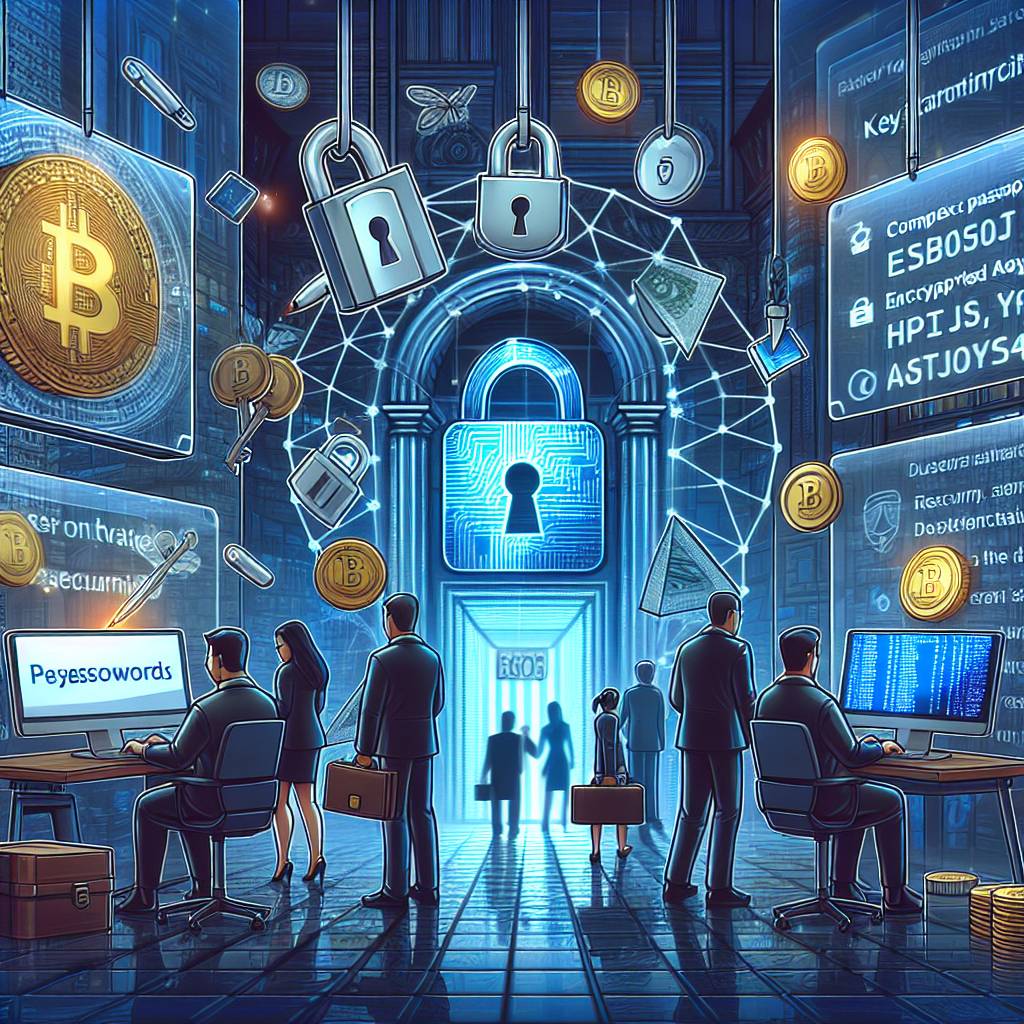What security measures should I take when storing cryptocurrency offline?
I want to ensure the safety of my cryptocurrency when storing it offline. What are some important security measures that I should take?

3 answers
- When it comes to storing cryptocurrency offline, security should be your top priority. Here are some important measures you should take: 1. Use a hardware wallet: Hardware wallets are specifically designed to securely store your cryptocurrency offline. They offer strong protection against hacking and malware attacks. 2. Create a strong and unique password: Make sure to use a complex password that includes a combination of uppercase and lowercase letters, numbers, and special characters. Avoid using common passwords or personal information. 3. Keep your wallet software and operating system up to date: Regularly update your wallet software and operating system to ensure you have the latest security patches and bug fixes. 4. Enable two-factor authentication (2FA): Two-factor authentication adds an extra layer of security by requiring a second verification step, such as a code sent to your mobile device, in addition to your password. 5. Store your backup securely: If you have a backup of your wallet, make sure to store it in a secure location, such as a safe deposit box or a fireproof safe. Remember, offline storage is generally considered safer than online storage, but it's still important to take these security measures to protect your cryptocurrency.
 Dec 20, 2021 · 3 years ago
Dec 20, 2021 · 3 years ago - When it comes to keeping your cryptocurrency safe offline, it's all about minimizing the risk of unauthorized access. Here are some security measures you should consider: 1. Use a dedicated offline device: Consider using a separate device that is only used for storing your cryptocurrency. This reduces the risk of malware or other security threats. 2. Encrypt your wallet: Encrypting your wallet adds an extra layer of protection by requiring a password to access your funds. Make sure to choose a strong password and keep it safe. 3. Keep your offline device offline: Once you've transferred your cryptocurrency to your offline device, disconnect it from the internet. This reduces the risk of remote hacking or malware attacks. 4. Regularly check for updates: Keep an eye on any updates or security patches for your offline device's software. Install them promptly to ensure you have the latest protection. 5. Be cautious with paper wallets: Paper wallets can be a secure way to store cryptocurrency offline, but they come with their own risks. Make sure to generate the wallet on a secure device and keep the paper wallet itself safe from physical damage or theft. By following these security measures, you can significantly reduce the risk of unauthorized access to your cryptocurrency.
 Dec 20, 2021 · 3 years ago
Dec 20, 2021 · 3 years ago - At BYDFi, we understand the importance of keeping your cryptocurrency safe when storing it offline. Here are some security measures we recommend: 1. Use a hardware wallet: Hardware wallets, such as the Ledger Nano S or Trezor, offer a high level of security for storing your cryptocurrency offline. 2. Enable passphrase protection: Some hardware wallets allow you to set up a passphrase in addition to your PIN. This provides an extra layer of security in case your device is lost or stolen. 3. Keep your recovery seed safe: When setting up your hardware wallet, you will be given a recovery seed. Make sure to write it down and store it in a secure location. This seed can be used to recover your funds if your device is lost or damaged. 4. Use a dedicated computer: Consider using a separate computer that is only used for managing your cryptocurrency. This reduces the risk of malware or other security threats. 5. Regularly check for firmware updates: Keep your hardware wallet's firmware up to date by regularly checking for updates. Firmware updates often include security enhancements. Remember, offline storage is one of the most secure ways to store your cryptocurrency, but it's important to follow these security measures to ensure the safety of your funds.
 Dec 20, 2021 · 3 years ago
Dec 20, 2021 · 3 years ago
Related Tags
Hot Questions
- 94
How does cryptocurrency affect my tax return?
- 67
What is the future of blockchain technology?
- 66
Are there any special tax rules for crypto investors?
- 53
What are the best digital currencies to invest in right now?
- 38
What are the best practices for reporting cryptocurrency on my taxes?
- 21
What are the advantages of using cryptocurrency for online transactions?
- 20
How can I minimize my tax liability when dealing with cryptocurrencies?
- 19
How can I buy Bitcoin with a credit card?
